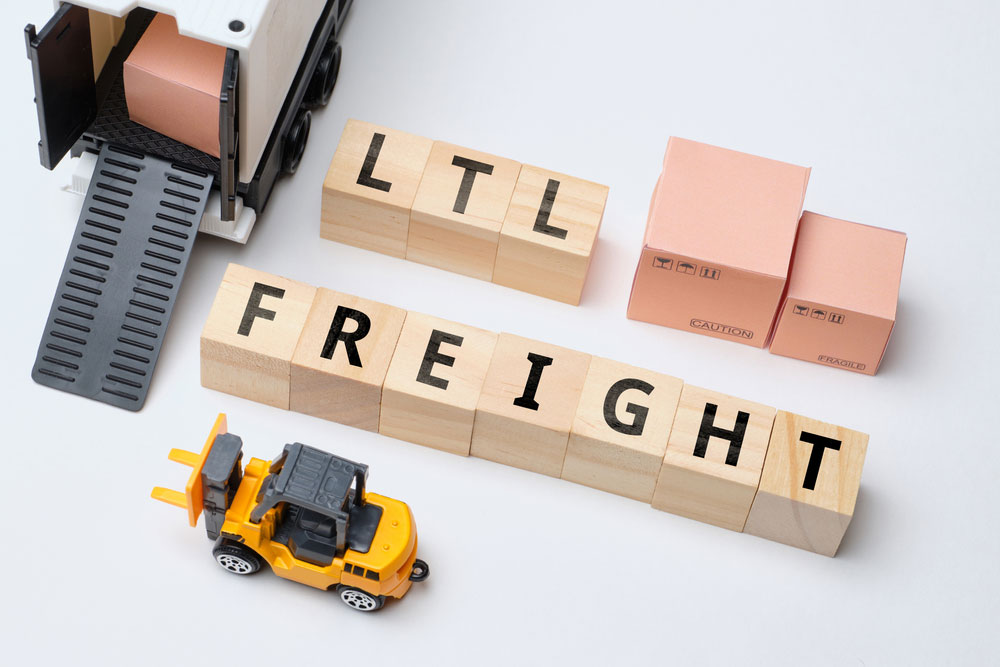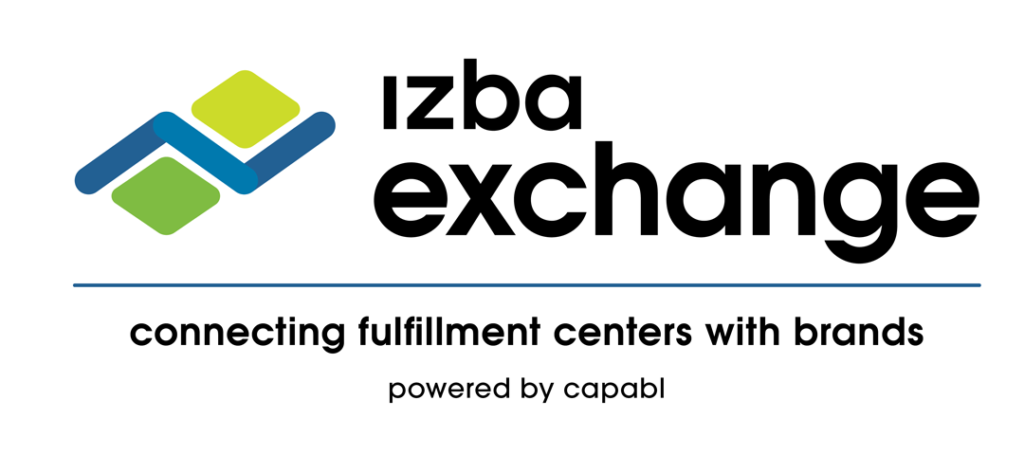
Understanding how domestic freight works is one of the first things a business owner or a supply chain manager needs to do. When you think about transporting your goods from point A to B, you have to consider the logistics and figure out the most cost effective way to get your product to its destination.
Domestic freight, as the name states, is the way to transport goods within a country and depending upon the freight they’re carrying, they can either be LTL (less-than-truckload) or FTL (full truck-load).
There are several transportation companies that offer both types of domestic freight but given the disparity and the competition in the market, it’s almost impossible for businesses and customers themselves to negotiate favorable rates with new trucking and logistics partners.
Needless to say, you need the help of someone who’s gained enough exposure and trust in the market to find reliable companies and negotiate deals on your behalf. That’s where a domestic freight broker comes in.
As Nick Stachel, a supply chain consultant at Izba states, “They’re the ones who find transportation for customers that don’t have their own trucks or vans to move freight, making brokered domestic freight the cheapest type of transportation”
What Does a Domestic Freight Broker Do?
Domestic freight brokers or brokerages are individuals or firms that serve as the middlemen between brands and transportation companies.
Just like insurance or a real estate broker, think of your domestic freight broker as someone who has spent enough time with freight companies to have their own discounts spread across a diverse network of connections.
Not only do these people know all about the industry, but they also have the expertise and connections to get rates much lower than the quotations that brands receive themselves.
So, let’s say you have 12 pallets of miscellaneous goods picked up from Philadelphia and going to Columbus, Ohio. The cargo will be ready in two days and you need it to be delivered by the end of the week.
What you’ll do here is call up a freight broker and tell them all the necessary information:
- Pickup time
- Pickup location
- Delivery time
- Delivery Location
- Special or specific instructions
As soon as they have what they need, they’ll send a notification across their network and get in touch with transporters that are interested in the job.
Depending on whether you need an FTL or an LTL, your broker will ensure that you get the fastest delivery possible.
Advantages of Domestic Freight Brokers
Domestic freight brokers can be extremely helpful for companies that don’t have enough resources to invest in their own logistics.
Buying trucks, insurance and employing drivers to set up a transportation infrastructure can be more than just costly. Maintenance and management can be difficult and in comparison, brokers tend to be the easier alternative.
As Nick states, “Even after adding in their commission, you’ll get a much better deal than you would have gotten without a broker.”
The reason behind this is quite simply, the broker’s experience and connections in the market. They are a regular customer for transportation companies and they know the ins and outs of the industry.
It’s not only impossible for these companies to pressurize these individuals because brokers know what the competition is, but they also rely on brokers because they bring these transporters more work.
Brokers will negotiate their own rates with the transporters and charge 8-14% for their service. Your broker will find a rate low enough by using their connections to find truckers that are heading to high surge places.
Nick says, “Just like the surge at Uber, every trucker wants to go to Los Angeles because they know there are a ton of containers sitting at the port of Los Angeles, meaning there’s a surge out there.”
“Depending upon where your shipment is going, the broker will likely get a good amount of calls and they’ll spend the day negotiating based on the rate that they settled on with the customer.”
The brokers do much more than just book your freight for a cheaper price. They also make sure that you get the terms and conditions you need. For example, they can help you decide whether you need a touch or a no-touch freight.
No-touch freight means that drivers don’t load or unload the truck while other freight offerings can have drivers working to load and unload the cargo.
In either case, as a company, you won’t be able to get tracking information for your delivery, making domestic freight very unreliable unless you have a broker who can find out where your shipment is or you pay a higher rate to have tracking visibility.
Domestic freight brokers can also simplify your search and provide you with options that come with real-time tracking. Sometimes, the drivers can let their trucking company know about status updates, who then convey the information to your broker and through them, to you.
What’s The Downside of Domestic Freight Brokerage?
As Nick says, “It’s also the riskiest form of transportation because you’re putting your freight on a random truck that you’ve never seen, with a driver you’ve never talked to. And you’re hoping that your broker is reputable in the industry and has a good list of trucking companies that can be trusted to not damage or steal your inventory.”
To understand this in detail, we need to look at how LTL and FTL shipments work.
FTL Freight

Full truck load freights are used to transport inventory that occupies the space of 12 pallets (the size of a full truckload).
Even if you have 11 pallets that need transporting, the smart option would be to go for FTL freight because these shipments tend to be more reliable and faster than LTLs, hence the extra charges.
“When you book an FTL, you’re booking the full truck and buying the driver’s time with it.”
FTL freight is transported from point A to B with no more breaks than the required minimum. The driver will only stop to refuel or rest and will complete the journey without any intentional delays.
Although much simpler and more reliable, FTL freight can be expensive for small businesses that don’t have enough inventory to move.
LTL Freight

Some of the risks associated with domestic freight include disruptions and delays in delivery times, especially when you opt for LTL freight. That’s because LTL freight only takes shipments that are fewer than 12 pallets (less than a truck-load).
For carriers like XPO, Old Dominion and FedEx, the number of pallets considered a full truck-load may be lower.
This means that if you have anything that doesn’t occupy the capacity of a full truck, you get the choice to not pay for the whole truck. The catch is that you’ll be sharing that freight with other brands.
When you book an LTL for inventory that amounts to 4 pallets, the truck that your 4 pallets are loaded on will be sent to other warehouses to pick up more inventory for other companies before it unloads at the closest city terminal on a transit truck that’s headed for the destination you need it to be delivered.
From there on, just like on a ‘milk run’ as Nick describes it, your inventory will be delivered to your facility when the transit vehicle unloads it on a truck headed to companies in your vicinity.
As you can assume, the delivery is more often than not, late and can run higher risks of damage and loss which is why it’s only recommended only if you’re trying to reduce costs or have very little inventory to move.
The same freight principles apply to trucks with refrigerators, known as Reefer LTLs and Reefer FTLs.
How Should You Work with Your Broker?
The key is communication and trust. You have to understand what it’s like being a broker and ultimately, whenever there are disruptions, you don’t want your relationship with your broker to come to the point where they’re hesitant to reach out to you with bad news.
Being hostile or aggressive towards brokers for not delivering on a promise they make based on other people’s performance can be futile. You’ll only be destroying your partnership with your broker.
On the other hand, good relations with brokers can get you favorable deals and opportunities along with continued reliability.
Of course, it’s recommended that you get in touch with a variety of brokers before finalizing your partners so that you have an idea of what to expect. Maybe someone ends up telling you a few trade secrets that you can use to negotiate a better deal elsewhere.
Ultimately, it’s all about creating win-win situations that benefit everyone involved in the process and you have to believe that your brokers are on your team. Good brokers will always own up to any undelivered promises and make it up to you sooner or later.
How Do You Get into the Freight Brokerage Market?
Nick states, “It’s very competitive to get into the freight brokerage market. There’s a very low cost of entry. You just have to deal with some insurance costs along with a motor carrier number.”
Though there are nuances in the process and the market itself, Nick says that once you have a DAT load board login, you’ll be connected to all the trucking companies instantly.
“But it’s really how a broker handles themselves against trucking companies that distinguishes them.”
If you’re a broker and you treat your trucking partners and clients well, you’re bound to have market confidence and eventually gain enough trust to receive special discounts.




